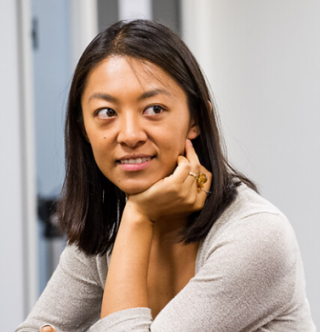MA Latin American Studies, 2014-15

From 2014-2015, I studied for an MA in Latin American Studies at the UCL Institute of the Americas (UCL IA) with the support of a Government of Mexico Scholarship. For some years, I had yearned to undertake graduate studies to challenge and broaden my perspective about Mexico and my place within it. My academic and professional training was in Law. While I was very committed to my career, I felt it was too narrow to account for inequality structures, destroyed archives, and alternative histories that were often left unaddressed by it.
The multidisciplinary focus at UCL IA allowed me to gain a comparative, historical and contextually grounded approach to connected issues that have structured Latin American societies from the colonial period to the present. The lectures were delivered by scholars who cared and were passionate about their topics of research. Through reading recommendations, small-group discussions, and essay and dissertation writing, students had many opportunities to communicate orally and in writing, and to receive timely feedback on pieces of work. While initially active learning at graduate level can feel daunting, as difficulty increased gradually at UCL, I was able to gain confidence over time with practical assignments and ongoing constructive feedback.
One of the aspects of the course that I found most beneficial was that at UCL, lecturers curated reading lists for each session that were engaging, critical and encompassed key concepts, debates and questions. We read them prior to the session, and prepared notes, presentations and questions for the seminar discussions. This enabled me to gain critical skills and thinking tools: informing my position, articulating ideas and writing clearly. The seminar discussions were my favourite part of the course as students could elaborate our ideas with more clarity, ask questions, and develop our arguments in interactive collaboration with our peers and lecturers.
The master’s dissertation supervision was without doubt the most crucial aspect for my personal and academic development. I was incredibly fortunate to have Professor Paulo Drinot as my supervisor, and benefited from his critical insight, kind mentorship, and prolific and meaningful publications in the field. When I was writing my essays and dissertation I read my supervisor’s books and articles on race, nation and state building. I had plenty of material to respond, build on and elaborate my own ideas and arguments. The supervisions gave me the encouragement, trust and freedom to pursue my own questions, reformulate existing ideas, and develop solid arguments with my research and writing.
Most of all, as a woman from an underrepresented background, I appreciated feeling seen and treated with respect by all of the UCL faculty and staff. I also appreciated that the cohort of students was composed of people of diverse backgrounds from Latin America and from countries beyond the US and Europe. It was a good balance, in which we could build on our knowledge and experiences and gain new insights into the perspectives of others. This experience taught me that having discussions with people differently positioned across race, class, gender and regional structures of oppression is pivotal to gain a critical, more rounded understanding of the world and of one’s position in it in relation to others. The location of London as a global city infused this sense of plurality beyond the classroom. UCL is near many universities and libraries, and it is easy to gain access to resources, attend talks, and meet with people from all walks of life.
To conclude, my studies at UCL IoA provided a solid basis to think of ‘Latin’ America as a contested idea, a sphere of geopolitical influence, and a racialised geographical entity. On this basis, I successfully applied for, and obtained, a Gates Cambridge scholarship to study for a doctoral degree at the University of Cambridge. Recently, I completed my doctoral dissertation titled ‘Becoming Japanese and Mexican: A Trans-Pacific Social History of Race, Mestizaje and Resistance across Five Generations’. While still waiting for my viva, I have been shortlisted and invited to an interview for my first post-doctoral application. I am thankful to everyone who has supported me in pursuing my interests, honing my research skills, and significantly contributing to my field by writing alternative histories previously destroyed, ignored or denied. I hope I can continue supporting other students in their learning through my research and teaching.
 Close
Close

